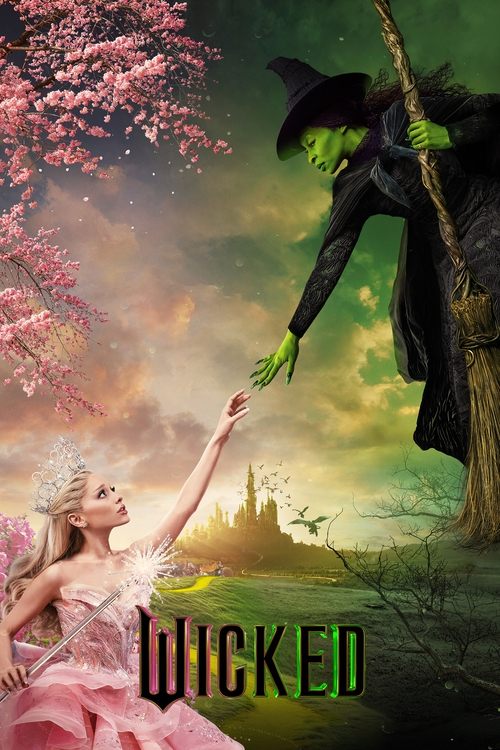
Ask Your Own Question
What is the plot?
Bliss (2021): Complete Plot Spoiler
Greg Whittle's Descent into Delusion
Greg Whittle sits at his desk at Technical Difficulties, a call center where he should be working but instead spends his hours sketching pictures of a dream home--a place far removed from the mundane reality surrounding him. He is a middle-aged man adrift in his own life, recently divorced and estranged from his adult children, going through the motions of employment without genuine engagement. His supervisor eventually calls him into the office to deliver the inevitable: Greg is fired. In a moment of tension during this confrontation, Greg accidentally stumbles into his boss Bjorn, causing him to trip and strike his head on a table. Bjorn dies from the impact. Panicked and desperate, Greg hides the body behind a curtain and positions it near a window before fleeing the office.
Seeking refuge and escape from what he has just done, Greg enters a nearby bar where his life takes a dramatic and disorienting turn. There he encounters Isabel Clemens, a mysterious woman with an enigmatic presence. Isabel is a street grifter living beneath highway underpasses, surviving on the margins of society. She approaches Greg with a proposition: she claims she can provide him an alibi for his boss's death if he retrieves an amulet from her ex-boyfriend in the restroom. But Isabel offers something far more significant than an alibi--she offers Greg an entirely new framework for understanding reality itself.
Isabel begins to reveal her extraordinary claim: the world around them is not real. It is, she insists, a computer simulation. Most of the people they encounter are not genuine beings but rather constructs within this fabricated world. To demonstrate her claims, Isabel displays what appears to be telekinetic power, making a waiter's tray suddenly fly from his hands and crash to the floor. She tells Greg that she possesses special abilities granted by colorful crystals--yellow crystals that she takes like a drug. These crystals, she explains, allow those who are "real" to manipulate matter within this fake world.
The Introduction to Yellow Crystals and False Powers
While Greg is away retrieving the amulet from the restroom, Isabel slips a yellow crystal into his drink. When Greg returns, she tells him, "This is the beginning of your new life". From this moment forward, Greg's existence becomes divided between two separate worlds--or rather, between what he believes are two worlds and what is actually his drug-induced hallucination.
Isabel takes Greg to her makeshift apartment beneath the highway underpasses, revealing her homeless existence. She teaches him how to use the yellow crystals to manipulate his environment. Greg discovers he can move objects with his mind, using only his finger to direct telekinetic force. The world around him begins to shift and warp. Solid objects flicker like holograms. Identical pedestrians appear through invisible portals, marching like robots in synchronized patterns. Isabel's narrative becomes increasingly persuasive: she tells Greg that she created this world, that it is somehow her fault that this reality exists.
Greg becomes convinced. He begins to see the world through Isabel's lens--as a construct where nothing has real consequences because nothing is truly real. They go rollerblading together, using their supposed telekinetic powers to knock people over, laughing at the apparent NPCs around them. At a roller rink, they trip a bully, and Greg is subsequently arrested and placed in a police squad car. But if nothing is real, arrest means nothing. They are released, and Greg continues to follow Isabel deeper into her delusion.
The Deterioration of Greg's Grip on Reality
Meanwhile, Greg's real daughter Emily Wittle searches desperately for her missing father in homeless shelters. She has been trying to reach him, to maintain their connection despite their estrangement. Emily gives Greg her phone number and begs him to call her. When Greg does call and reaches an answering machine, Isabel becomes enraged. She insists that Emily is not real, that she is merely a hologram--a construct designed to keep Greg trapped in the simulation. Isabel's control over Greg tightens as she isolates him from any connection to his actual life.
Greg's brother Arthur Wittle also witnesses the deterioration of their father's condition, seeing him homeless and unable to afford food. The family watches helplessly as Greg descends further into his drug-induced psychosis, unable to recognize that the woman he has attached himself to is feeding into his delusion rather than helping him escape it.
Isabel works as a prostitute in this "false world," and Greg sees her get into a car with a client and leave. She tells him that she is a scientist in the real world, that she has created this simulation to solve a particular problem. Her narrative becomes increasingly elaborate and convincing to Greg's deteriorating mind. She claims that people become too accustomed to utopia, and her creation is designed to address this fundamental human flaw.
The Escalation of Violence and Control
The violence in Greg's hallucinated world escalates. Greg's boss Bjorn--whom he actually killed--appears to fall from the office window in front of multiple witnesses, and his death is ruled a suicide. A man gets shot three times and apparently dies. Someone has his throat apparently cut. A man and woman beat up another person and leave him unconscious in the middle of the road. Greg sees these events unfold around him, each one reinforcing Isabel's narrative that nothing is real, that there are no true consequences.
Isabel becomes increasingly possessive and controlling. She tells Greg that they are soulmates, that she is the only one who truly knows what is real. When Greg begins to doubt her, when he questions whether her scenario--where only she knows who is real and he must depend entirely on her--is actually true, Isabel slaps him. She demands proof of his faith in her. Frightened but desperate for answers, Greg agrees to take the blue crystals she produces--rare crystals that she claims will eject them from the simulation and transport them to the actual reality.
The Revelation of the True Reality
After inhaling the blue crystals, Greg and Isabel are transported to a completely different environment. They find themselves in what appears to be a scientific facility--a resort lobby where they discover they are hooked up to a giant box of floating brains called "The Brain Box". In this space, Isabel is revealed to be Dr. Isabel Clemens, a hot-shot scientist fighting against skeptics to prove her creation. The elaborate simulation they have been experiencing is real--but not in the way Greg believed. It is a virtual reality created by Isabel's scientific work, and Greg has been a subject within it.
Yet even this revelation does not fully clarify the nature of Greg's situation. As the truth begins to emerge, it becomes apparent that what Greg has been experiencing is not a computer simulation at all, but rather the effects of hallucinogenic drugs. The yellow crystals and blue crystals are not mystical objects but narcotics that have fundamentally altered his perception of reality. Isabel is not a brilliant scientist but a drug addict who has been feeding Greg's delusion, isolating him from his real life and real family.
The Final Confrontation and Choice
In the climax, Greg and Isabel discover that there are only enough blue crystals for one person to escape--to return to what they believe is the real world. Isabel suggests that Greg should take the crystals and leave, but Greg has a different idea. He tells her that she should kill him inside the simulation, believing that real people cannot die in this fabricated world. If she kills him, he reasons, he will prove that he is real, and he will meet her on the outside.
Isabel refuses. She tells Greg that it is her fault, that she created all of this. But then Emily appears--not as a hologram or a construct, but as a real person searching for her father. Emily screams for Greg, held back by police. In this moment, Greg realizes the truth: Emily is real. His daughter has been real all along. Isabel's entire narrative has been a lie designed to keep him dependent on her, to keep him trapped in the drug-induced haze of her creation.
Greg apologizes to Isabel for his attachment to Emily, for his refusal to accept her version of reality. He gives her the blue crystals and tells her to take them. Isabel leads the police toward herself, creating a distraction that allows Greg to escape. She then takes the blue crystals herself.
The Resolution and Aftermath
Greg is taken to a rehabilitation clinic where he begins the long process of recovery. In the final scene, he attends an Alcoholics Anonymous meeting where he holds up a picture of his daughter Emily. He has chosen to embrace what is real--his family, his daughter, his actual life. He has rejected Isabel's delusion and chosen to rebuild his relationship with Emily.
The film ends with the suggestion that Greg has reconnected with his daughter and is beginning to heal from his addiction and mental breakdown. He has learned that the world is "kind of beautiful because you never know what's going to happen next"--a realization he shares with Emily before his escape. What once seemed like a prison of false reality becomes, in recovery, an opportunity for genuine human connection and redemption. Greg's journey from a man drawing pictures of dream homes at his desk to a man attending AA meetings and rebuilding his relationship with his daughter represents a painful but necessary return to reality, to the messy, unpredictable, and ultimately real world that Isabel tried so desperately to convince him did not exist.
What is the ending?
In the ending of "Bliss," Greg, who has been navigating a surreal reality, ultimately chooses to embrace the blissful illusion over the harshness of reality. He decides to stay in the simulated world with Isabel, despite the consequences of abandoning his real life. The film concludes with a sense of ambiguity about the nature of happiness and reality.
As the film approaches its conclusion, we find Greg, played by Owen Wilson, grappling with the duality of his existence. He has been torn between the stark, painful reality of his life and the alluring, vibrant world created by the simulation. The emotional weight of his choices hangs heavily on him as he reflects on his past, particularly his failed marriage and the disconnection he feels from his children.
In a pivotal scene, Greg confronts Isabel, portrayed by Salma Hayek, who has been a guiding force in his journey through this alternate reality. They share a moment of vulnerability, where Greg expresses his fears and doubts about the life he has left behind. Isabel, embodying a carefree spirit, encourages him to embrace the bliss they have found together, suggesting that happiness can be a choice, even if it is rooted in illusion.
As the narrative unfolds, Greg is faced with a critical decision: to return to his real life, which is filled with pain and regret, or to remain in the blissful simulation with Isabel. The tension builds as he weighs the consequences of each choice. The film visually contrasts the drab, colorless world of reality with the vibrant, dreamlike quality of the simulated environment, emphasizing the allure of escapism.
In the final moments, Greg makes his choice. He opts to stay in the simulation, fully aware that it is a constructed reality. This decision is marked by a poignant scene where he and Isabel share a tender embrace, symbolizing their commitment to each other and the life they have chosen, despite its artificial nature. The camera lingers on their faces, capturing a mix of joy and uncertainty, as they step further into the blissful illusion together.
The film concludes with a sense of ambiguity, leaving the audience to ponder the implications of Greg's choice. While he has found a semblance of happiness with Isabel, the reality of his previous life remains unresolved. The fate of Greg's family is left uncertain, and the film closes on a note that questions the nature of happiness and the sacrifices one makes for it.
In summary, Greg chooses to remain in the blissful simulation with Isabel, leaving behind the complexities of his real life. The ending encapsulates the film's exploration of reality versus illusion, and the characters' fates are intertwined in a world where happiness is a subjective experience, regardless of its authenticity.
Is there a post-credit scene?
In the movie "Bliss" (2021), there is no post-credit scene. The film concludes its narrative without any additional scenes or content after the credits roll. The story wraps up with the main characters, Greg and Isabel, having navigated their complex realities and emotional struggles, leaving the audience with a sense of resolution regarding their journey. The absence of a post-credit scene emphasizes the film's focus on the themes of reality, perception, and the search for happiness, allowing viewers to reflect on the story without any further distractions.
What is the significance of the two different realities in Bliss?
In 'Bliss', the two different realities represent the contrast between a harsh, gritty existence and a vibrant, idealized world. Greg Wittle, played by Owen Wilson, initially experiences a disillusioned life filled with struggles, while the alternate reality, where he meets Isabel, portrayed by Salma Hayek, offers a sense of joy and fulfillment. This duality serves to explore themes of perception, happiness, and the nature of reality itself.
How does Greg's character evolve throughout the film?
Greg starts as a disheartened man, grappling with the collapse of his marriage and his career. As he navigates between the two realities, he becomes increasingly aware of his own desires and the choices he has made. His relationship with Isabel helps him confront his fears and ultimately leads him to question what true happiness means, culminating in a deeper understanding of himself.
What role does Isabel play in Greg's journey?
Isabel serves as both a guide and a catalyst for Greg's transformation. She introduces him to the blissful reality, challenging his perceptions and encouraging him to embrace a more optimistic view of life. Her character embodies the idea of hope and possibility, pushing Greg to confront his past and consider the potential for a brighter future.
What are the implications of the technology used in the film?
The technology in 'Bliss' is pivotal as it blurs the lines between reality and illusion. It raises questions about the ethics of escapism and the consequences of choosing a manufactured reality over genuine experiences. The technology symbolizes the allure of an idealized life, but also serves as a warning about the dangers of losing touch with reality.
How does the film portray the concept of love in different realities?
In 'Bliss', love is depicted as a transformative force that transcends the boundaries of both realities. Greg's connection with Isabel highlights the idea that love can provide solace and meaning, even in the face of adversity. The film contrasts superficial relationships in the harsh reality with the deeper, more fulfilling bond they share in the blissful world, emphasizing love's power to inspire change and growth.
Is this family friendly?
"Bliss," produced in 2021, is not considered family-friendly due to its mature themes and content. Here are some potentially objectionable or upsetting aspects that may occur:
-
Substance Abuse: The film explores themes of drug use and addiction, which may be distressing for younger viewers or sensitive individuals.
-
Mental Health Issues: Characters grapple with significant mental health challenges, including depression and existential crises, which could be unsettling.
-
Violence: There are scenes that depict violence or aggressive behavior, which may be inappropriate for children.
-
Adult Themes: The narrative delves into complex adult relationships and emotional turmoil, which may not be suitable for younger audiences.
-
Disturbing Imagery: Some visual elements may be intense or disturbing, contributing to an overall sense of unease.
These elements combine to create a film that is more appropriate for mature audiences.



























































